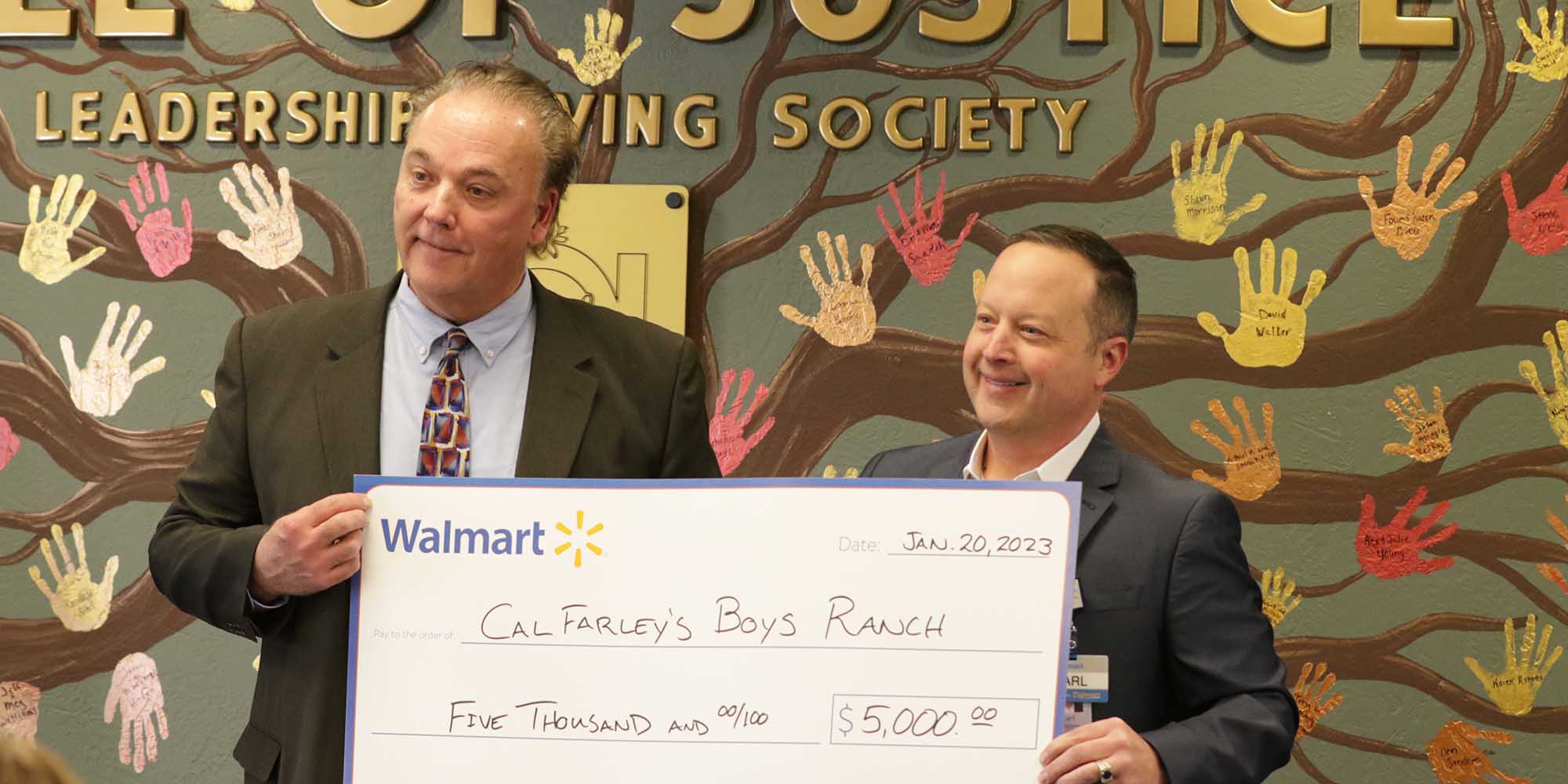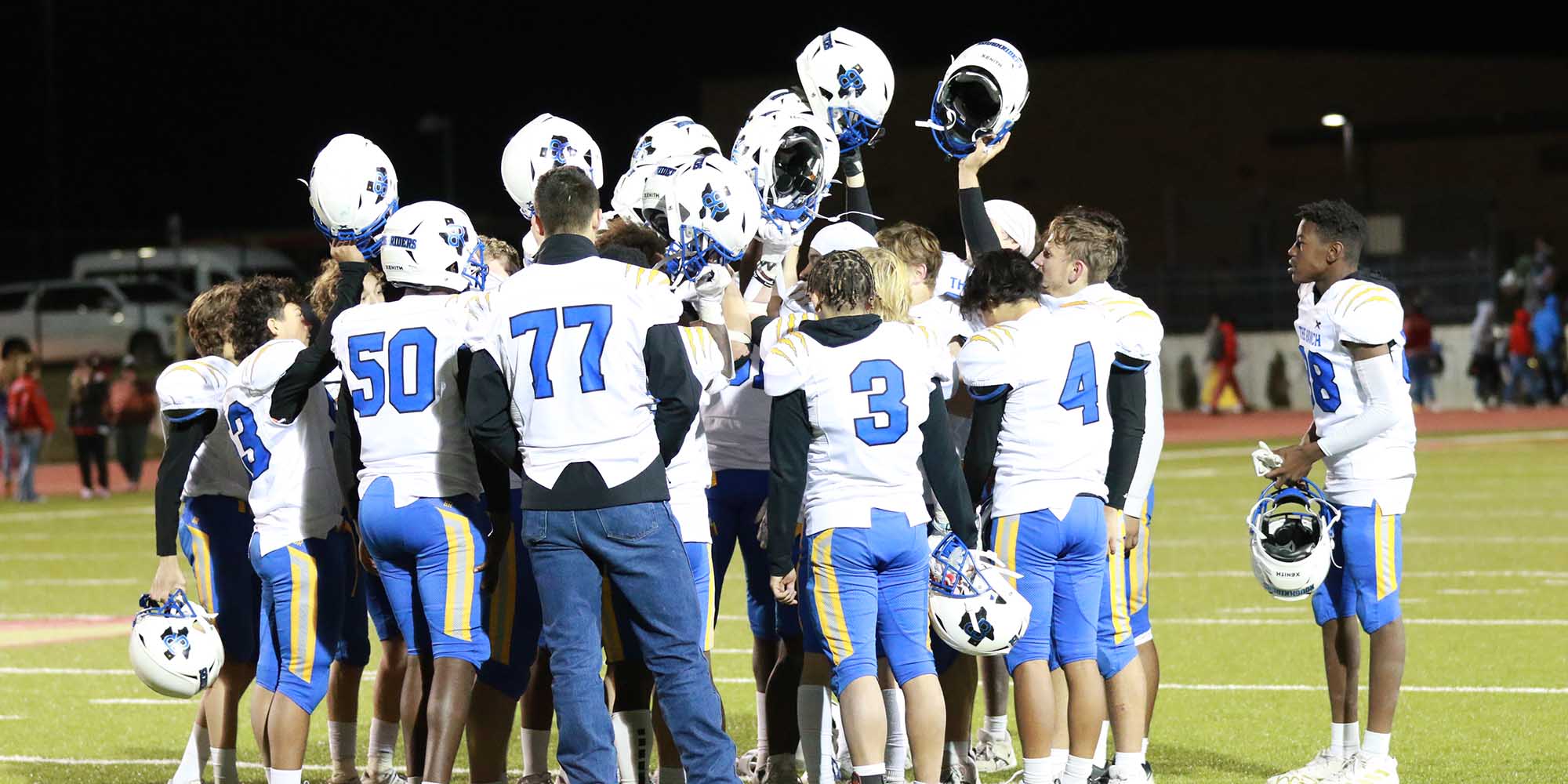New Beginnings
At Boys Ranch
Help children rise above painful pasts and
lay the foundation for a successful future.
Welcome to Cal Farley's Boys Ranch
A Nurturing and Supportive Residential Community
Nestled in the rolling hills northwest of Amarillo, Texas, Cal Farley’s Boys Ranch is a residential community open to at-risk children ages 5 to 18. While, at first glance, the campus might appear much like any other Texas Panhandle town, it is much more. Every person in our community understands the importance of healthy relationships.
Cal Farley’s Mission
Cal Farley’s provides professional programs and services in a Christ-centered atmosphere to strengthen families and support the overall development of children.
New Beginnings At Boys Ranch
Help children rise above painful pasts and lay the foundation for a successful future.
A community Unlike any other
Boys Ranch is a leader in residential childcare services
For over 80 years, we’ve worked to meet the needs of children and families — at no cost to the people we serve, thanks to the continued generosity of our supporters, and without seeking state or federal funds to support our work.
Get Help

Admissions
Hope and a future for struggling families. Click here to get more information about placing a child at Boys Ranch.

Alumni Support
Much like a family, Boys Ranch is committed to our former residents, even into adulthood. Get information on services available to our alumni.

Child Safety
Nothing is more important than the safety of our youth, whether they currently reside with us or were formerly in our care. Click to find out more.
Boys Ranch Philosophies

Strengths-Based Approach
How you approach a challenge has a great deal to do with how successful you’ll be at solving it. At Cal Farley’s Boys Ranch, we don’t see the young people who come to us as problems in need of a solution. Instead, we approach them from a completely different perspective.
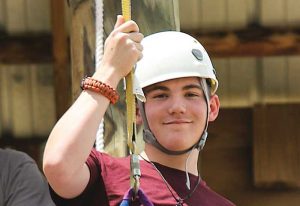
We see their strengths.
Many youth Boys Ranch serves come from difficult backgrounds that forced them to develop methods to cope with their environments. These coping mechanisms allow a child to get through challenging circumstances, but can create obstacles in other areas of their life. Boys Ranch caring professionals identify areas of a child’s life that are working well for them, and use those areas as a foundation on which to rebuild a healthy, well-adjusted child.
For example, consider a child who’s struggling in school, but who excels in an activity outside of class. A common approach might be to limit his involvement in that activity until his grades improve. And, while there might be times when that’s appropriate, Boys Ranch approach is to examine the child’s area of strength, called “islands of competence”, and determine if there’s something there the child can apply to improve his performance in the area where he is struggling.
Boys Ranch always seeks to understand why a child behaves as he does. After all, our purpose isn’t to punish poor behavior or lackluster performance. Instead, Boys Ranch wants to equip the child to choose better behaviors or increase his performance through his own choices.
Boys Ranch sees the promise in every child we serve, and we’re committed to helping them achieve it.
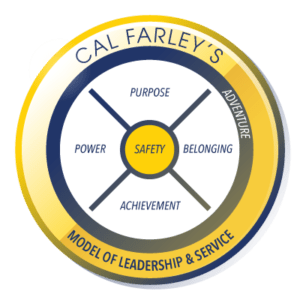
Model of Leadership & Service
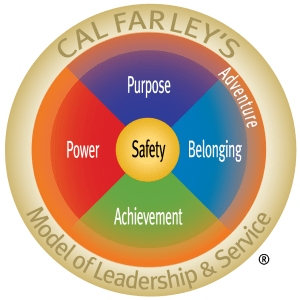
Our Model of Leadership and Service represents six universal needs:
SAFETY ● POWER ● PURPOSE ● BELONGING ● ACHIEVEMENT ● ADVENTURE
We believe when these six areas of need are met, individuals are able to reach their fullest potential. Relationships that are unconditional and restorative are key to meeting these needs.
We believe challenging behavior stems from one or more of these needs not being met – or being met inappropriately.
Our approach moves us from the certainty that behavior is simple willful defiance to being curious as to what need is behind the behavior.

Informed Care
Following more than two years of intensive certification and thousands of personnel hours dedicated to master the core concepts and implement the Neurosequential Model of Therapeutics (NMT™) in our clinical setting, Cal Farley’s was invited to become a Flagship Site for the ChildTrauma Academy (CTA) in the Neurosequential Model of Therapeutics (2012). Now, as a Phase II NMT™ Certified Site, Cal Farley’s can offer leading edge services to children and families.
What is NMT™?
The Neurosequential Model of Therapeutics is a developmentally sensitive, neurobiology-informed approach to clinical problem-solving. NMT™ is not a specific therapeutic technique or intervention. It is an approach that integrates core principles of neurodevelopment and traumatology to inform work with children, families, and the communities in which they live. The Neurosequential Approach has three key components – training/capacity building, assessment, and then, the specific recommendations for the selection and sequencing of therapeutic, educational, and enrichment activities that match the needs and strengths of the individual.

